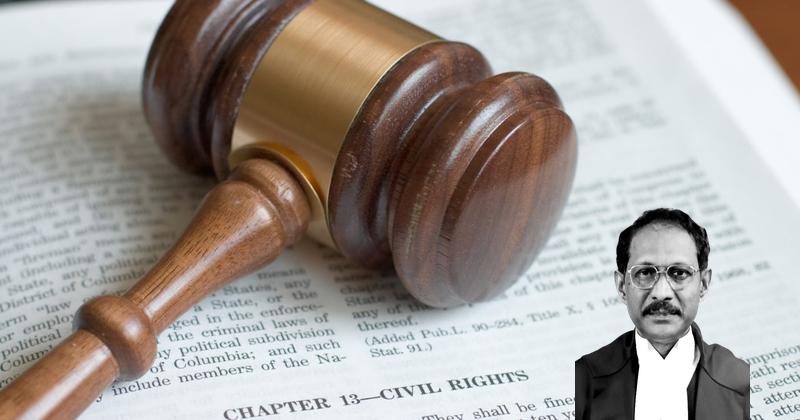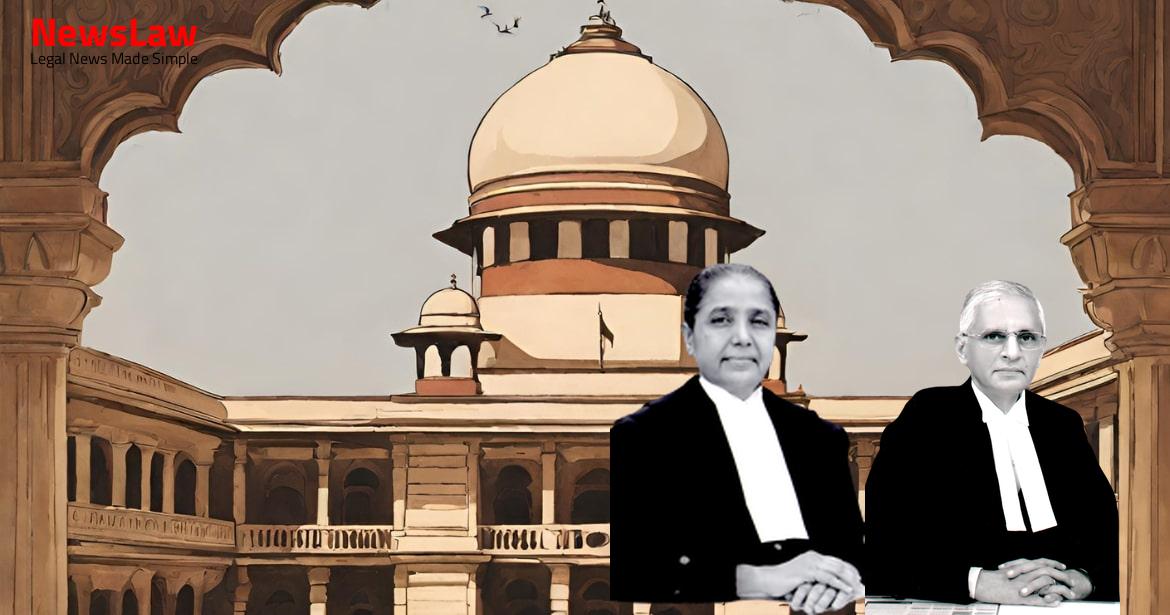Explore a groundbreaking legal analysis on the reversal of a conviction under the Arms Act. Delve into the intricate examination conducted by the court, focusing on the case’s legal facets and implications. Discover how the court meticulously evaluated the evidence and rendered a pivotal verdict.
Facts
- The Sessions Judge found a prima facie case against the accused and charged them under various sections of the IPC and Arms Act.
- The accused, including the appellant, pleaded not guilty and claimed trial.
- The appellant’s appeal resulted in acquitting him from the offence under Section 120-B IPC but upholding the conviction under Sections 29 & 30 of the Arms Act.
- The High Court found that the police had arrested the appellant under specific sections of the Arms Act only.
- The prosecution successfully established that the appellant was the license holder of the Double Barrel 12 Bore Rifle used in the murder.
- The Trial Court convicted and sentenced the accused as per the charges.
- The High Court observed that the appellant couldn’t have willingly handed over his licensed rifle for the murder.
- The High Court set aside the conviction and sentence of the appellant under Section 120-B IPC but upheld the conviction and sentence under Sections 29 & 30 of the Arms Act.
- The deceased and Sukhjit Kaur went to her paternal home and then to Gurudwara Solkhian Sahib before the incident.
- Two men on a motorcycle were seen near Village Bahman Majra, one carrying a rifle.
- Accusations of murder against Sukhjit Kaur, Gurpreet Singh @ Titu, and Sukhjinder Singh were made by Jit Singh and the deceased’s mother.
- Accused Gurpreet Singh @ Titu disclosed the location of an empty cartridge/shell concealed at a farm in Village Sanana.
- The appellant led the police to recover the gun license and confessed to keeping the license for a Double Barrel 12 bore gun in his house.
- Investigating Officer (IO) recorded statements and discovered that the gun used in the murder was licensed under the appellant’s name.
- A disclosure statement by Gurpreet Singh @ Titu revealed the location of the Double Barrel 12 bore Gun hidden at his farm house in Village Sanana.
- The incident leading to the murder occurred when a mosquito entered Sukhjit Kaur’s eye and two men approached the deceased, resulting in the fatal shooting.
- FIR No 119/2007 was filed under Section 302 of IPC and Section 24 of Arms Act based on Sukhjit Kaur’s statement.
- After investigation, the case was committed to the Court of Sessions, Rupnagar for trial.
Also Read: Assessment of Loss of Earning Capacity in Motor Accident Claim
Arguments
- The appellant, as the license holder for the Double Barrel 12 Bore Rifle, did not willingly part with his rifle.
- He had no part in the conspiracy hatched by the other co-accused.
- The crime was committed without the knowledge of the appellant.
- Accused Gurpreet Singh @ Titu illegally took the rifle from the co-owned farmhouse of the appellant and used it in the murder.
- The Deputy Superintendent of Police (Rural), Rupnagar, filed submissions stating that the appellant was the license holder of the Double Barrel 12 Bore Rifle used in the murder.
- It was the implied duty of the appellant to keep the firearm in safe custody.
- The appellant failed to provide evidence confirming co-ownership of the farm house with the co-accused Gurpreet Singh.
- The appellant did not report the theft of the firearm, showing negligence.
- The High Court acquitted the appellant from an offence under Section 120-B IPC but upheld the conviction under Sections 29 and 30 of the Arms Act.
- Section 29 of the Arms Act relates to punishment for knowingly purchasing arms from unlicensed persons or delivering arms to unauthorized individuals.
- The appellant submitted the Jamabandi of the farm land showing joint ownership with the co-accused.
Also Read: Enhancement of Compensation in Workmen’s Compensation Act Case
Analysis
- Violation of Section 30 of the Arms Act pertains to purchasing firearms or ammunition from unlicensed individuals, or delivering arms or ammunition to unauthorized individuals.
- Punishment for contravening Section 30 can include imprisonment for up to three years, a fine, or both.
- Punishment for contravening any conditions of a license or provisions of the Act without specified punishment includes imprisonment for up to six months, a fine of up to two thousand rupees, or both.
- In this case, the appellant is not found to have willfully violated any conditions of the Act or license provisions, and thus, should be exonerated from the offence under Section 30.
- The co-accused Gurpreet Singh took the licensed firearm of the appellant without permission to murder the deceased.
- The appellant could have been charged with Section 29(b) only if it was proven he knowingly delivered the firearm to the co-accused.
- No evidence exists to show the firearm was handed over by the appellant.
- The firearm was taken illegally by co-accused Gurpreet Singh from a farmhouse co-owned by the appellant and him.
- The appellant cannot be charged with Section 29 of the Arms Act and his conviction by the High Court under the said Section is not liable to be sustained.
- The appellant stands exonerated from the offence under Section 120-B IPC by the High Court.
- The prosecution failed to establish that the firearm was knowingly and willingly parted by the appellant and taken away without his knowledge by the co-accused for use in the commission of an offence.
- There is no justification to convict and punish the appellant even under Section 30 of the Arms Act.
Also Read: Determining Compensation in Motor Accident Claim Cases: Legal Analysis
Decision
- The appellant is acquitted of the charges under Sections 29 and 30 of the Arms Act.
- The appeal is allowed based on the facts and discussions presented.
- The impugned judgment of the High Court convicting the appellant is set aside.
Case Title: TARLOCHAN SINGH @ RANA Vs. THE STATE OF PUNJAB (2022 INSC 356)
Case Number: Crl.A. No.-000293-000293 / 2018



